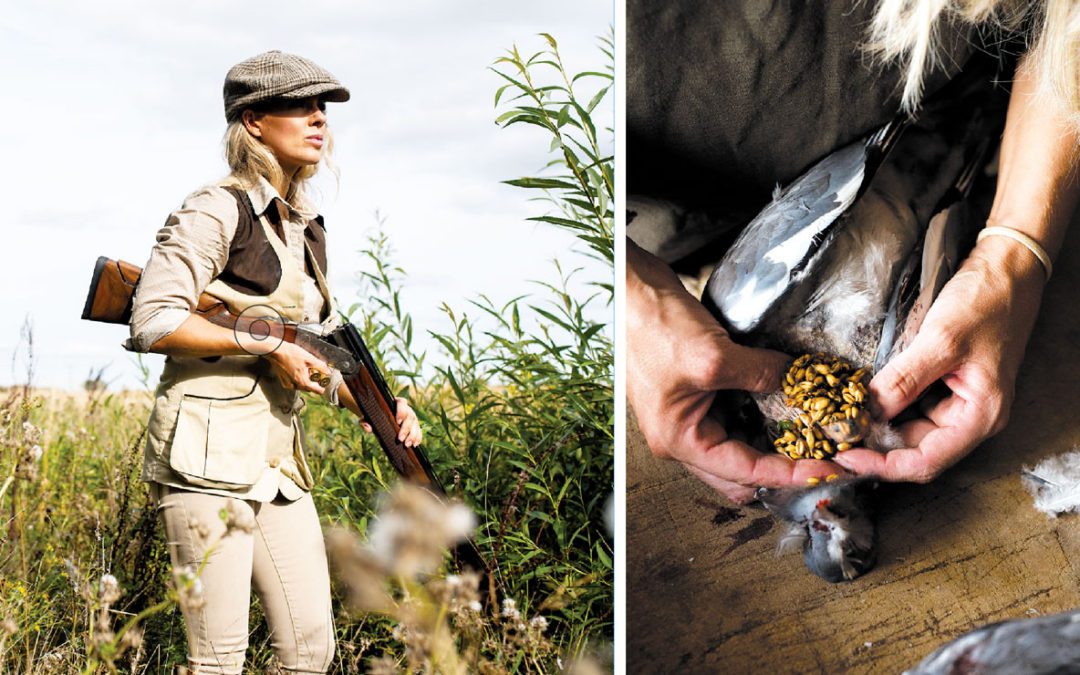At the feet of the Yorkshire dales, through acres of golden wheat stubble and small dairy farms, I arrived in her driveway. After trying to comprehend the broad Yorkshire accent of the man building her new patio, I was warmly greeted by Rachel at the door.
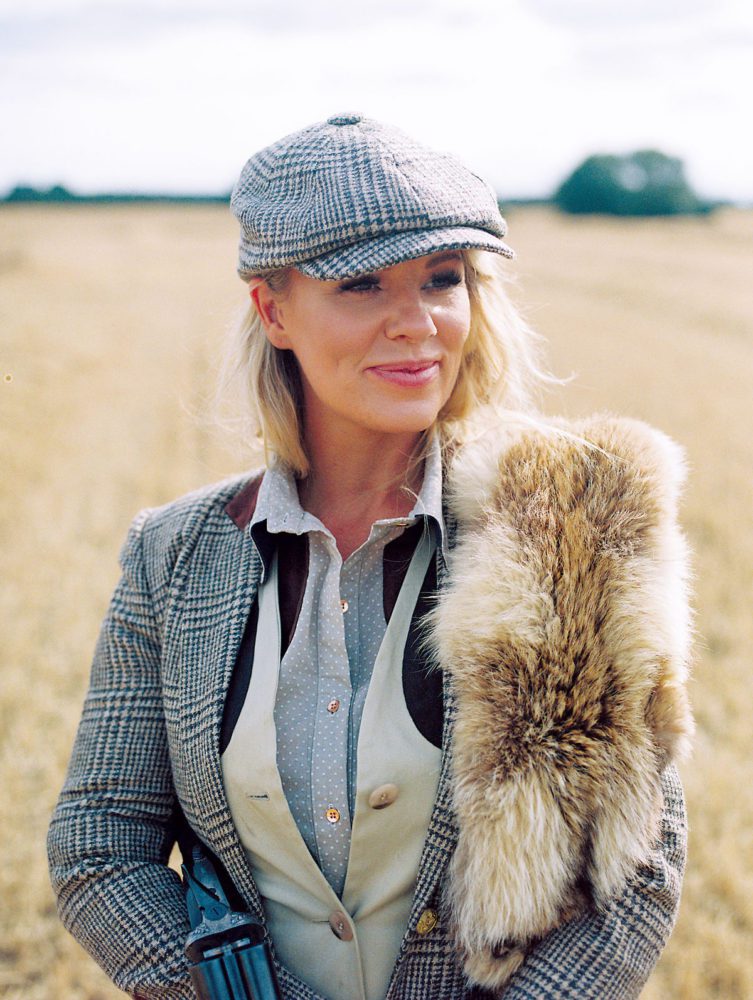
Rachel Carrie attributes her success as a hunter to patience and hard work. She’s now an ambassador for Krieghoff’s K-20 Victoria over-and-under.
Her home was full of the same rustic charm as other British homes I’ve seen, but with a modern flair that comes from a design-minded person. Infused with mementos and trophies of her life and adventures, there were stories to be told that you’ll have to wait to hear from Rachel herself.
Born and raised a Yorkshire girl, Rachel spent her youth on the grounds of her father’s business as a scrap metal merchant. Set down in a quarry filled with still operable cars and even an old airplane, her scrap yard adventures with two siblings were punctuated by the presence of the surrounding agricultural land and animals.
The local gamekeeper kenneled his dogs on their property and often dropped off wounded animals to be healed through the ministrations of Rachel’s nurturing mother. From hedgehogs to black birds to a red fox that would become a family pet for years, there was always a diverse population of animals.
Rachel was 7 when her father brought home a ferret, which promptly clamped its teeth onto her brother’s chin.
“Needless to say he was a bit put off after that so the ‘problem’ ferret faced imminent dispatch,” Rachel recalls. “I couldn’t let the poor creature be killed. I begged and pleaded with dad to let me have a chance to tame her, and so I became the family ferret handler.
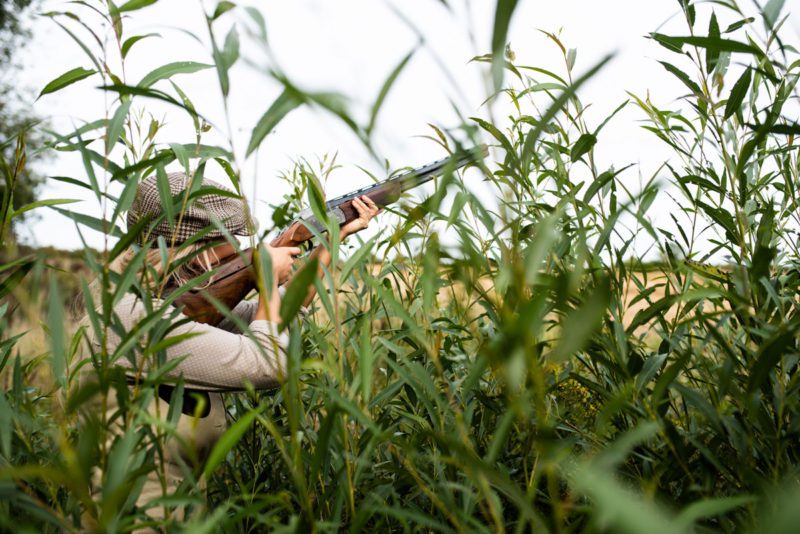
“We named her Jill, and she bit, nipped and scratched the hell out of my hands, but I refused to give in. My persistence and love of that little ferret is what led my father to eventually let me have my very own small pack of working ferrets, and what bore the roots of my love of hunting and working the land.”
When Rachel’s father acquired a Harris’s hawk, she became an integral member of very special team that was allowed to hunt on a neighbor’s abattoir.
“The farm was overrun with rabbits and we were grateful for the time outdoors and the rabbits for the pot,” says Rachel.
“My time rabbiting with dad are really stand-out memories. I can’t think of anything more exciting and exhilarating than scrambling through brambles, my ferrets in pursuit of dinner that often eluded you. The delight of watching Jaeger, our hawk, swoop down on a rabbit that my ferrets had flushed from their warren made me beam with pride.”
One of Rachel’s roles on the falconry team was to quickly and humanely dispatch each rabbit, then skin and cut it up on her favorite butcher’s block (a tree stump).
“It was all just a very natural process,” she says. “There was never a need for my dad to be sensitive or censor any part of it from me. I suppose I was lucky that my childhood exposed me to hunting in its purest form—living off the land and appreciating the natural resources we have around us. Although it was an adventure—and much more fun than being dragged around the mundane aisles of the supermarket—it was necessity. It was the cheapest way to acquire delicious meat, and it was a recreational escape for my father.
“What’s more, it was a fantastic way to teach me responsibility, to get outdoors and to spend time with my dad,” Rachel explains. “It taught me that we are successful through patience and hard work. It instilled in me a deep-rooted passion for wildlife, and to utilize nature’s larder, despite the modern world’s increasingly severed ties with reliance on wild meat.
“My childhood definitely fueled the fire that burns inside me to live that lifestyle even today.”
Now we have finally begun to arrive at what is really fascinating about Rachel. She really, really loves shooting and hunting. She is one of only two people to win the Outstanding Gun Award; she’s won silver in the UK Championships, has a massive social media following and has enjoyed a wide media presence, but she doesn’t seem preoccupied with herself. She truly loves educating and evangelizing people who aren’t hunters.
After her engagement to world-class champion shooter Mark Winsor, she put her own competitive career on hold to concentrate on her other passions. She spends her time hunting, cooking and doing public relations work on behalf of the sport. There is a lot of money to be made in the industry, but she’s not interested. She doesn’t want to sell products. She just wants to hunt and help other people love hunting.
If you’re really alive in any way, you’re going to notice that Rachel is a beautiful, blonde lady. Although she grew up a self-proclaimed tomboy, her mother transferred her glamorous elegance
to Rachel.
“You can only be what you are,” says Rachel. “It doesn’t matter if you’re a man or a woman. It doesn’t matter if you have blonde hair. You can still shoot. Yes, I often look nice on a hunt, but that doesn’t mean I don’t know what I’m doing.
“I’ve proven that it’s not just a man’s game,” she says. “It’s not a lifestyle reserved only for lords of the manner or the rosy-cheeked farmers’ sons and daughters. And it’s certainly not a lifestyle which has been, or should be, consigned to the history books.
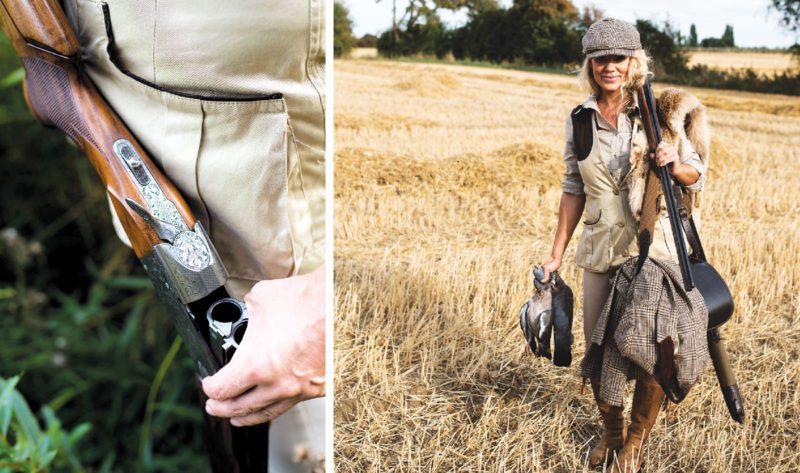
“Our inherent connection to the land, our ability to hunt, gather and give our food respect has a real place in modern society. It has a very real place in my home—a real place in my kitchen.”
When I asked for her thoughts on the sexualization of the gun industry, her reply was mature and poignant.
“I don’t mind if someone uses what they have to be successful,” she says in reference to bikini-clad girls holding rifles. “I just want them to actually know how to shoot first,” she adds with a quick, sly smile.
Standing just behind a head-high thicket on the edge of a harvested wheat field on an uncharacteristically warm and sunny British afternoon, Rachel narrates her process. Nettles prick at my pants and a partridge squawks displeasure at our proximity.
Three shells and 15 minutes later, we have two wood pigeons for dinner.
“Looks like you don’t have to wear camo to hunt pigeons after all,” she says, dropping her Krieghoff K-80 in the back of her Land Rover.
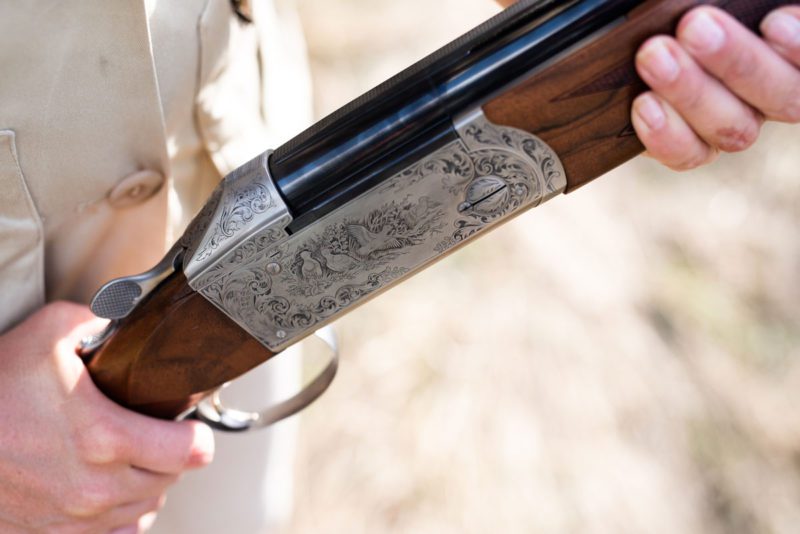
Rachel was approached by six firearms manufacturers over the years with great products and attractive deals, but she chose to spend her own money on Krieghoff guns. Rachel is now an ambassador for Krieghoff’s K-20 Victoria over-and-under.
“If that doesn’t tell you how special a gun Krieghoff is, I don’t know what will,” she says.
At this point, I’m looking forward to some fresh pigeon breast, but Rachel is not quite ready. Her eyes glint with excitement as she inspects the bird’s crop. The contents are nothing special, just wheat kernels and rapeseed, but to Rachel, the process was just another step in her ongoing education of things outdoors.
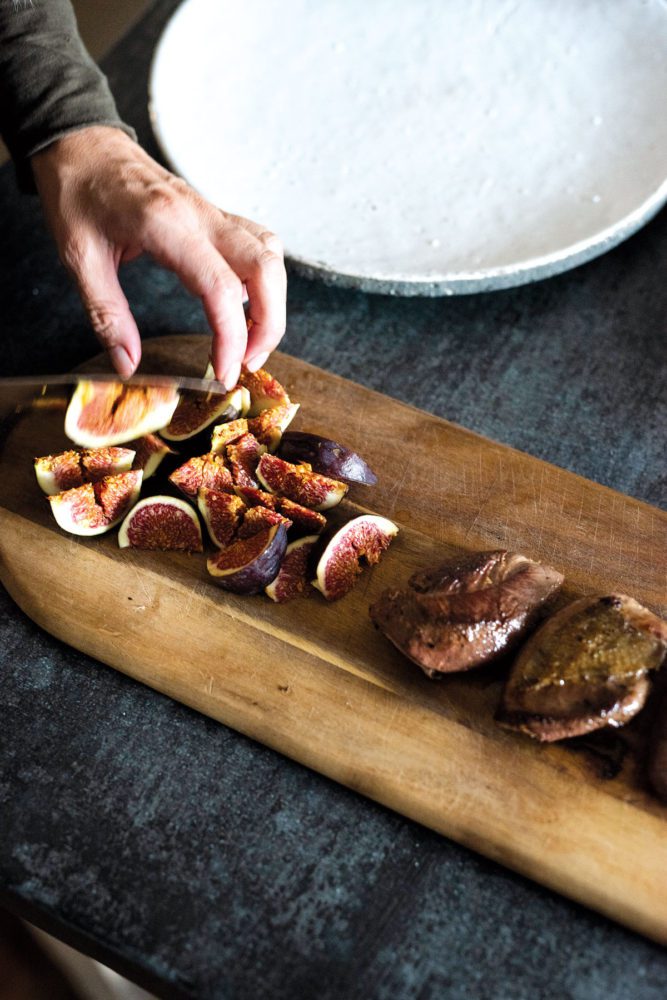
With a sharp knife and practiced hands, she harvests all the meat she can from the bird. Leaving the flavorful layer of skin and fat, she washes and tosses the breasts into a hot pan of butter.
She then slices some fresh figs, one of her favorite ingredients, and piles them alongside the sizzling pigeon breast on a bed of baby spinach drizzled with a spiced fig balsamic dressing. I try to maintain my composure as I stuff my own crop with the delicious recipe out of Rachel’s soon-to-debut cookbook.
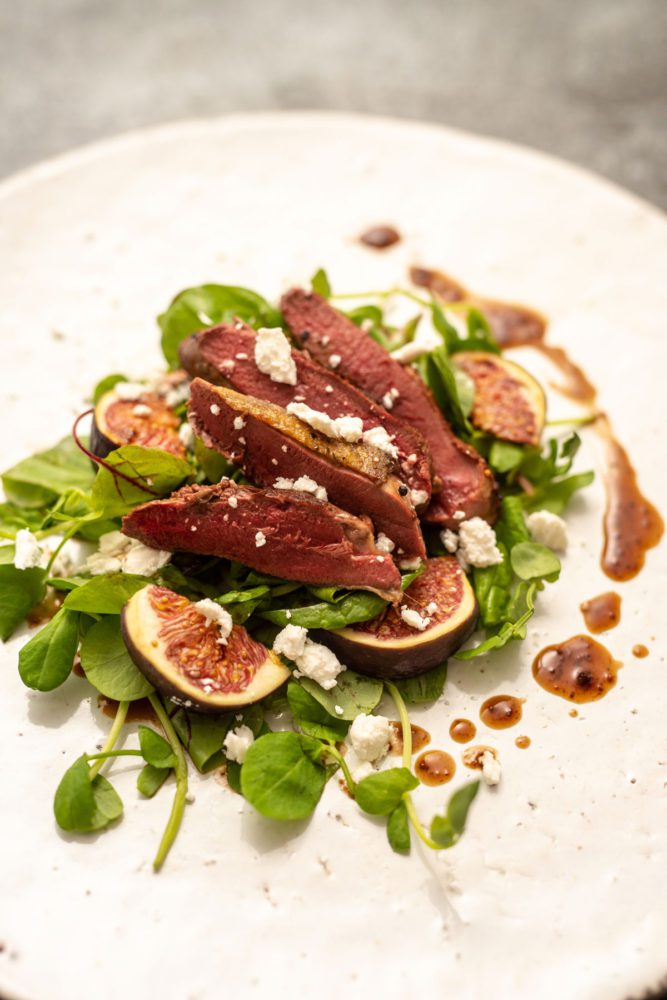
Leaving her house, I struggled to find the words to describe her. I think it was because she holds a nearly unrecognizable trait: her ego and ambition don’t drive her, only her pure love of the game. Rachel is proud of what she has accomplished, but she seems to hold a peace that lets the accomplishments and recognition come as they will and not be something to constantly strive for.
I found her investment in the legacy of the sport, not in just her career, to be refreshing. It was a good day in the field and the kitchen, and I believe that many more will have that opportunity and pleasure due to the efforts of Rachel Carrie.

